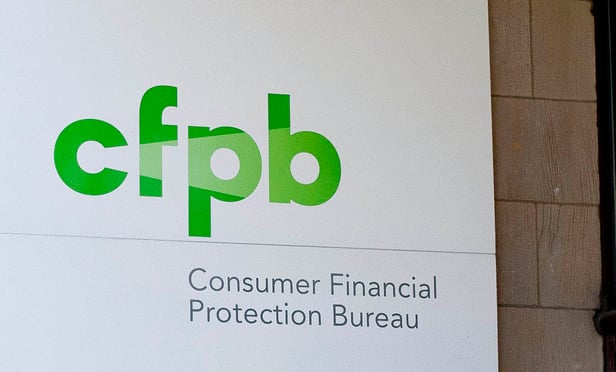 Consumer Financial Protection Bureau building in Washington, D.C. Photo by Diego M. Radzinschi
Consumer Financial Protection Bureau building in Washington, D.C. Photo by Diego M. Radzinschi
House Financial Services Chairwoman Maxine Waters (D-Calif.) wants to know why the CFPB recently has settled with three companies that engaged in illegal practices without requiring them to repay consumers for their activities.
"The Committee has serious concerns about how the Consumer Bureau is exercising its enforcement authority, especially how it is determining whether to require companies to pay redress to consumers that have been harmed," Waters and Rep. Al Green (D-Tx.), chairman of the committee's Oversight and Investigations Subcommittee, wrote in a letter Thursday to CFPB Director Kathy Kraninger.
Recommended For You
Waters and Green said the settlements represent a change in policy at the bureau, adding that the settlements stand "in stark contrast to the Consumer Bureau's practice under the leadership of former Director [Richard] Cordray."
"American consumers deserve a Consumer Bureau that will fight to recover their hard-earned money when they are cheated," they continued.
Waters and Green requested all documentation concerning the three settlements:
- On Jan. 16, the CFPB settled with Sterling Jewelers, saying the company enrolled customers who had a Sterling credit card in payment protection insurance without their consent. Sterling paid a $10 million fine, but was not required to repay consumers, the House members said. That insurance plan generated $60 million for the company in 2016, they said. "The Committee is deeply troubled that the Consumer Bureau would allow a company to keep the profits they made from their illegal sales practices," Waters and Green said.
- On Jan. 25, the bureau announced it had settled with Enova International, an online lender for debiting consumers' bank accounts without authorization. Enova agreed to pay a $3.2 million civil penalty but was not required to repay customers.
- On Feb. 1, the CFPB announced a settlement with NDG Financial Corp. and others. The case had been initiated during Cordray's tenure, according to Waters and Green. At the time, the complaint sought to provide restitution for customers, but when the case was settled, there was no requirement for those payments. They said the company had made loans that were in violation of state laws. The consent order in the case barred the company from making or collecting on any loan in the U.S. NDG also was barred from collecting on any existing loans.
The CFPB did not respond to CU Times for a request for comment.
© 2025 ALM Global, LLC, All Rights Reserved. Request academic re-use from www.copyright.com. All other uses, submit a request to [email protected]. For more information visit Asset & Logo Licensing.







